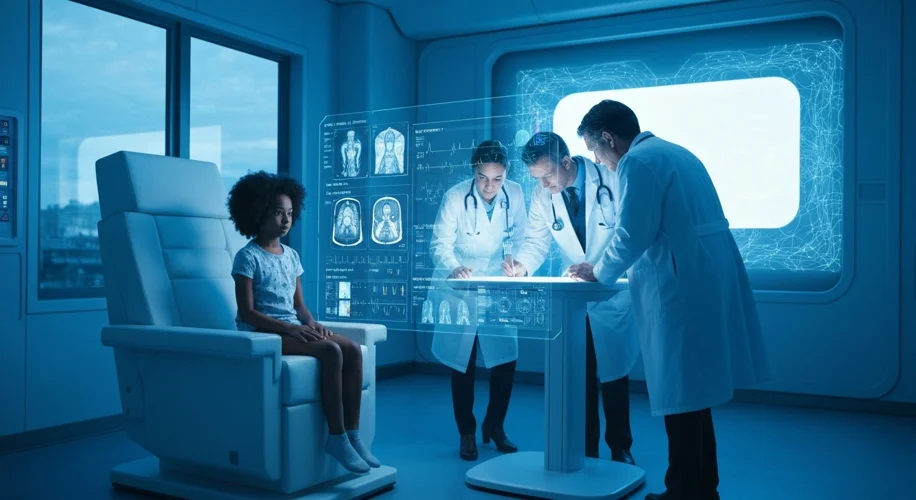Okay, so hear me out… what if I told you AI could help doctors diagnose a rare condition faster than ever before? That’s not just some far-off sci-fi dream anymore. We’re seeing real cases, like a nine-year-old girl who was fainting daily for five months.
This is a pretty wild story that popped up recently. This young girl was experiencing daily fainting spells for half a year. Doctors were trying to figure out what was going on, running tests, but the cause remained elusive. It’s the kind of situation that must have been incredibly stressful for her and her family.
Then, AI stepped into the picture. Doctors used advanced AI tools to analyze her medical data. Think of it like an AI super-brain that can sift through massive amounts of information – symptoms, test results, medical history – way faster and more thoroughly than a human possibly could. It can spot subtle patterns that might be missed.
In this case, the AI helped pinpoint a really rare condition. I’m not going to get into the super-specific medical jargon, but the key thing is that this diagnosis was made much quicker because of the AI. We’re talking about potentially saving months, or even years, of uncertainty and worry for patients and their families.
This isn’t just about one lucky break. This case study highlights how AI is starting to change the game in healthcare. It’s not about replacing doctors, but giving them really powerful tools to help them do their jobs better and faster.
Imagine AI helping to spot early signs of diseases, suggesting the most effective treatment plans based on a patient’s unique genetic makeup, or even helping to develop new drugs. The potential is pretty huge.
For us as tech enthusiasts, it’s fascinating to see AI move beyond just apps and chatbots and into areas that have such a direct impact on people’s lives. It’s proof that the tech we’re excited about can solve some really serious real-world problems.
This kind of advancement shows us the life-saving potential of AI in diagnostics and patient care. It’s pretty inspiring to see how technology is making a difference.

